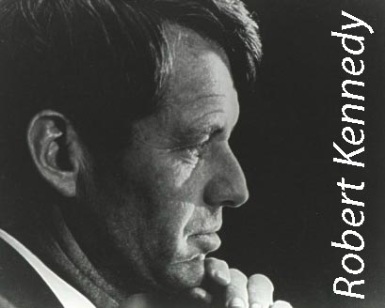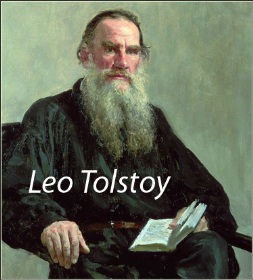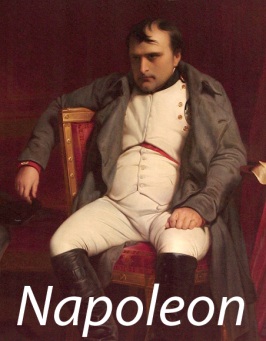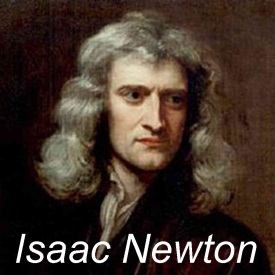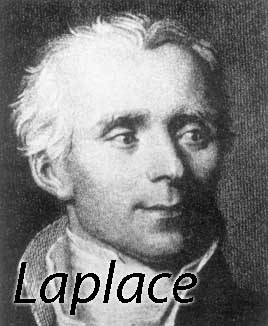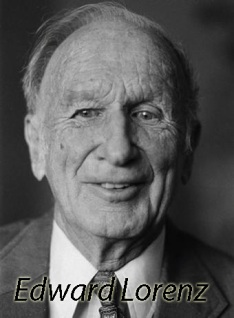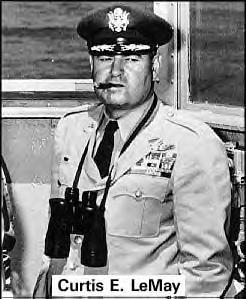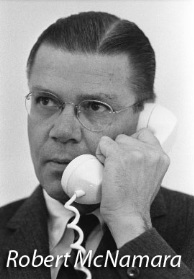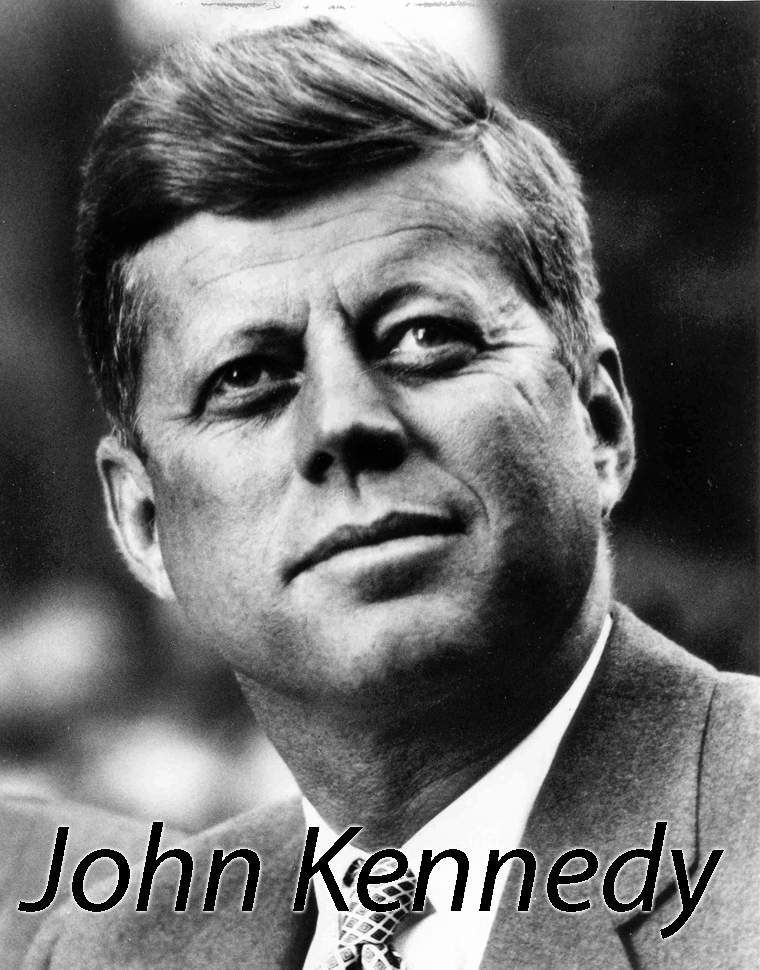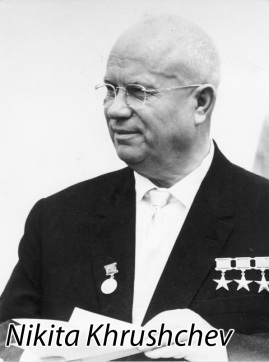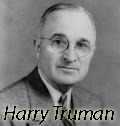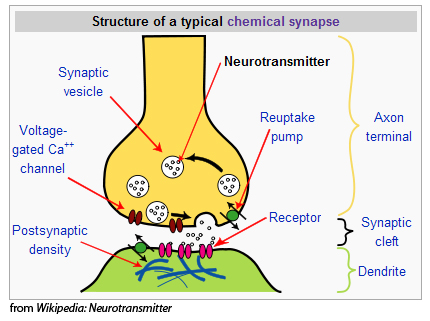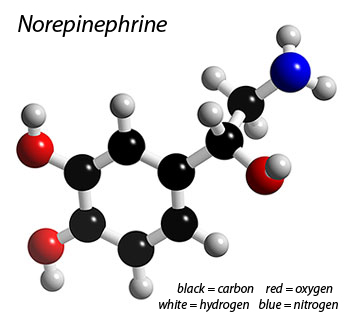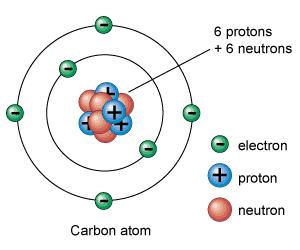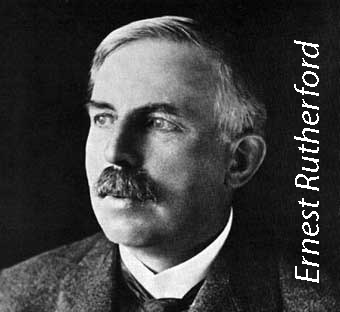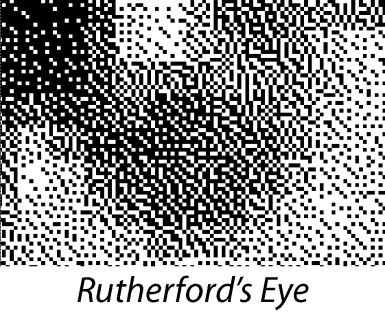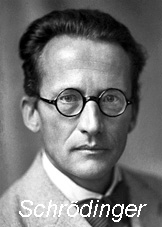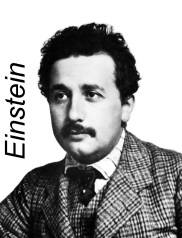Who Saved Miami?
Historical Fiction By Jack Armstrong
This story begins at 10:20 a.m. on Saturday, October 27th, 1962. I’m going to go ahead and warn you now that it also ends then. Unlike most stories, which trace the unfolding of events as time proceeds, this one just stays on that one moment, drilling ever deeper into it like a terrier after a rat.
What happened at that particular moment was, civilization did not come to an end in a global thermonuclear holocaust. And unlike all the other times when that didn’t happen, at this particular moment it almost did.
Before we begin digging, there is one fact in the history I must call particular attention to. This is the question of exactly how close we came to disaster. How real was the threat, really? For answer, I turn to Robert Kennedy, who as Attorney General and the brother and closest confidant of the President, was right in the thick of it from beginning to end. He wrote an excellent book about the affair, called Thirteen Days. In it, he wrote that we came as close as could be. This story takes that assertion as its starting point.
So our task is to examine all the candidates and rule them out one by one until we find the hero of Miami.
The first candidate is what you might call “historical forces.” I don’t know about you, but speaking for myself, I have always been comforted by the belief that it couldn’t really have happened. In other words, the fact that it didn’t happen is proof that there were any number of “historical forces” which made that outcome inevitable. That’s what I believed.
It would be very comforting to believe, by the same logic, that Khrushchev could not have bombed Miami. He didn’t do it, therefore (we may reason) there must have been any number of historical forces, not immediately apparent to you and me, that prevented him. But here we are, standing here in his mind, looking out through his eyes, and the proverbial button is right here in our hand. There is nothing and nobody to stop us. We are weighing the pros and cons. Several times we even decide to go ahead with it, then hesitate at the last moment. We cannot help but see that Khrushchev could have vaporized Miami with no more effort than it costs you or me to microwave a bag of popcorn.
So where did Tolstoy go wrong?
Therefore there must have been some individual person who stood up to fate and changed Khrushchev’s mind.
That leaves the Russians.
One person who has often been called “the man who saved the world” was Vasili Alexandrovich Arkhipov, commander of the Soviet Foxtrot submarine mentioned earlier. When this ship came under U.S. attack, the captain believed the war had started. The ship had orders from Moscow that if the captain, the commander and the political officer agreed, they were authorized to launch a nuclear missile at the U.S. Of the three, Arkhipov alone argued for restraint, and after several hours of high drama, eventually persuaded the captain to surface and contact Moscow for orders. (This story was made famous by Tom Clancy’s book and movie, The Hunt for Red October. Except that Clancy changed the Russians into Americans. Arkhipov was played by Denzel Washington. I guess Clancy calculated that American audiences weren’t quite ready yet for Russian heroes.) In favor of Arkhipov’s candidacy, it must be said that, had he not persuaded his shipmates, they would have fired their missile, which would almost certainly have precipitated the dreaded event.
=========================
So let us now shrink ourselves to a millionth of our usual size, and rendezvous on the threshold of Khrushchev’s squishy red ear. Let us don our headlamps, open the trapdoor and descend the ladder. Once arrived, let us stand for a moment in the lobby of Khrushchev’s mind (the “visuospatial sketchpad,” to borrow a phrase from neuroscience and make it sound like we know more than we actually do), and have a look around. Memories, words, pictures, ideas, hopes, fears, loves and resentments are swarming everywhere in a great rushing swirl. We’ll need a minute to get oriented.
A huge surprise greets us immediately. Another of my cherished notions falls casually almost before our feet hit the soft ground. That is the notion that, although he could have done it, he wouldn’t have done it. In other words, when push came to shove, no sane person would actually choose to click the button and kill tens of millions of people. Unfortunately, standing here in Khrushchev’s mind, it is inescapably obvious that not only was Khruschev capable of such an act, he had already done it. Three times!
not soldiers in combat. They were children at school; women standing at their stoves or hanging out laundry; infirm old geezers taking the sun in their wheelchairs. The lucky ones were killed on impact. Most were burned alive. And of those who survived, five million were left homeless and destitute. I can’t promise that Truman’s sleep was untroubled afterwards, but I can say that he was not a maniac. He was a sane and compassionate man faced with bad options. He chose to kill half a million Japanese people in order to prevent an even worse catastrophe.
I’m not repeating these sad facts because I delight in tragedy. I’m just trying to emphasize the fact that Khrushchev absolutely could have and absolutely would have pushed the button.
But now that we are here in Khrushchev’s mind, perhaps we should not be surprised to find that he didn’t see it that way. At all. From his point of view, it was the Soviets who were fighting for freedom and America was the evil empire. In one of history’s tragic ironies, both sides in the Cold War wanted the same thing: empowerment of the people.
The Russian Revolution had swept aside the aristocracy and replaced it with a communist government – true rule by the people. After all, he himself, Nikita Khrushchev, a peasant villager with four years of schooling, had risen to become premier. What better proof could there be of the egalitarianism of the USSR? As for Stalin’s purges, he justified them this way: they were a regrettable but necessary step along the true path to freedom. The Soviet system was supported by the vast majority of the people; if a few malcontents refused to go along, but continued to stand in the way of progress, the government had no choice but to remove the threat, as any government must do. This is how Khrushchev saw it.
And then there was the CIA. America had just staged a naked attempt to invade Cuba, overthrow its government, and install another “fawning lackey of the American imperialists” (Khrushchev’s words). We had already done just that in Guatemala and Iran. We were in the middle of another such effort in Vietnam. In Khrushchev’s eyes, the American military-industrial complex was a juggernaut with a handful of invisible fatcats at the helm, rolling irresistably over one country after another in an insatiable quest for world domination. The Soviets, although outgunned and outnumbered, must fight for freedom, or else the entire world would fall into a new Dark Age.
Remember, Miami and its quarter of a million inhabitants are minutes away from annihilation. Somewhere in this morass of feelings and ideas swirling around in here is something that caused Khrushchev to recall the Gagarin. But what was it? Because so far, the more we dig, the worse it gets.
We’ve ruled out all the other people who might have influenced him, we’ve ruled out “historical forces” and moral imperative. Surely then, there must have been some compelling pragmatic reason. So let’s have a look at where the politics stood on that October day in 1962.
Here we must leave the “historical” part of this historical fiction completely behind. It’s time to invent from wholecloth. The requirements of this invention: 1. It must have exerted an influence on Khrushchev sufficient to overcome the objections of everyone around him, to overcome his own personal political ambitions, and to overcome his conviction in the cause of worker’s rights; 2. It must be something Khrushchev would have kept secret, since he is not reported to have mentioned it.
For any number of excellent reasons, let us assume it was a woman.
Back in 1910, during his Yuzovka days, Khrushchev is said to have been a frequent guest (arriving in style on the motorcycle he had built himself from scraps) at the home of fellow apprentices Ilya and Misha Kosenko. The Kosenkos had three sisters. Details about these sisters is unfortunately beyond my reach. Except that they called Khrushchev a “red-headed ragamuffin,” I have been unable to find any further details about these dears, so we must fill in the gaps as best we might.
The day after the dream, in a meeting with a group of KGB men, he had asked one of them to see if he could find her (rank has its privileges, even among Communists). He learned that Lena had followed a different path. In the Bolshevik revolution of 1917, she fled the country with her two brothers to Germany (home of their company, Bosse and Greene). Then, when war threatened between Germany and Russia, she fled again. She went with her best friend, a Jewish woman, to America. To Miami, to be specific, where the friend’s parents lived in a little retirement community. Lena had never married.
But as I said, Nikita was not the type to pine away. He had work to do. Thoughts of Lena fell to a distant shelf in the far reaches of his busy mind.
to the membrane of the receiving neuron, it induces an electric charge. The electric charge pulses down the length of the neuron, a few other yet-to-be-discovered things happen, and voilà: consciousness.
I understand that the “yet-to-be-discovered” looms rather large in the whole picture, but we have enough for our purposes. We are interested in the fate of that neurotransmitter.
It would probably be a mistake to imagine the brain registering discrete memories in neat rows that can be accessed individually, like a computer chip. More likely when we remember something, it involves activating a great multitude of different areas of the brain – sights, smells, sounds, feelings. They accumulate and coalesce. If the accumulation gets big enough to cross a certain threshold, it becomes a conscious memory.
At this moment, a memory of that dream of Lena is forming in Khrushchev’s mind. There is only just enough of it to reach that threshold of consciousness, but not quite enough to get across.
Here’s a diagram of a carbon atom (the black balls in the picture above), as first proposed by Ernest Rutherford in 1909. They call it the “solar system” model of the atom, since the electrons orbit the nucleus like planets around the sun. Like all carbon atoms, it contains six protons, six neutrons and six electrons. That’s what makes it a carbon atom, instead of, say, oxygen (8 of each) or hydrogen (1 of each). In carbon atoms as in all other atoms, the electrons have arranged themselves into orbits: two in the first orbit (counting from the nucleus) and eight in each subsequent orbit. Except there aren’t enough electrons to fill the outer orbit. It’s missing two. One thing about atoms is, they hate incomplete electron orbits. A carbon atom will go mooning about until it finds an atom that has two extra electrons in its outer orbit, and they get married. They then share the two extra electrons. You can picture the nuclei side by side, with the two extra electrons making figure-eights around them. Now both atoms have exactly eight electrons in their outer orbits, and they can rest content.
In this case, one of the electrons in one of the carbon atoms in our norepinephrine molecule is going to let go of its OH submolecule (the red ball with a white ball attached) and lock instead onto a carbon atom that belongs to a protein chain in that postsynaptic membrane, which will initiate a chain reaction down the length of the receptor neuron, which will in turn incite other neurons, culminating in Khrushchev remembering Lena, calling off the Gagarin, and saving the world.
So now we are faced with the question, what caused the electron to gain that very important quantum of energy?
Science’s official answer: “no idea.” As long ago as 1937, Werner Heisenberg proved that not only do we not know the answer, we cannot know the answer. He called it the Uncertainty Principle. Nothing but pure random chance caused that electron to jump. This isn’t like the chance that a flipped quarter will land on heads. With the quarter, we have every reason to believe that, if we measured and calibrated closely enough, we could predict every bounce and spin that quarter made and predict with 100% accuracy which side it would land on. Like Newton’s billiard balls.
Notice that I said “physical” universe. We have reached the limit of what can be seen, detected, measured.
But that only counts as the end of the universe if we are capable of seeing everything. We realize we were making a big assumption: “if we can’t see it, it isn’t there.” But why should we assume that? Who are we to claim omniscience? I don’t even know where my spare car keys are! Individually, our lives are a daily diet of miscues, miscommunications, misunderstandings and mistakes. Collectively, the entire Noble History of Science is a headless giant lurching haphazardly from one profoundly flawed and incomplete picture to another. At best, each new picture is slightly less flawed and incomplete than the previous, but not always even that. Based on this track record, we claim omniscience? Based on this, we believe that our squishy two pound wad of neurons is capable of penetrating the universe to its ultimate truths?
Life is like that. Our living selves are not in the physical material we are made of. Rather, Life plays our atoms the way Paul plays the piano. And those little quantum transactions are the ivories.
The whole living world is one gigantic sign pointing to the notion that what lies behind that quantum leap was the opposite of “nothing.” Rather, there is a vast, unseen presence (presences? Or some inconceivable third thing?) out there that holds the entire knowable universe in its palm. I won’t imply it’s always benevolent – unfortunately that is obviously not true. But it sure was benevolent on the 27th of October, 1962. And that is a hero I can believe in.
====================
In my defense, I was not alone in that belief. In fact, no less an authority than the great Leo Tolstoy (coincidentally Khrushchev’s favorite author, and mine) devoted an entire chapter of his epic War and Peace to this proposition. This chapter comes at the point in the story when Napoleon has arrived at the banks of the Dnieper River (Russia’s western border) with his 300,000-man army, and must decide whether to invade Russia or turn back.
To explain why Napoleon went ahead and crossed the river, Tolstoy turned to Newtonian physics. Newton posited that every action has an equal and opposite reaction. For example, a billiard ball strikes another billiard ball. The first ball stops, and the second rolls away at exactly the same speed (adjusted for friction) with which it was struck by the first ball.
This is the law of nature now generally known as “the law of conservation of energy.” Four hundred years of subsequent investigations have served only to fortify this notion. By the time Tolstoy came along, it was generally believed among educated people that this idea explained everything. It left out nothing. The entire universe was nothing more than gajillions of atoms bouncing off each other like nanometric billiard balls. Extending this notion to its logical conclusion, if you once knew the positions and velocities of every atom, you could predict the whole future to the smallest detail. The entire universe was a gigantic clockwork which, once started, proceeded inexorably along its preordained path. It has been reported that when Napoleon (coincidentally) asked the French astronomer Laplace why there was no mention of God in his work, Laplace answered, “I had no need of that hypothesis.”
Tolstoy painstakingly enumerated all the myriad infinitesimal causes – individual events and decisions by millions of people over the preceding decades – that accumulated into the gigantic force compelling Napoleon and his army eastward. The reaction must equal the force, ergo there was nothing Napoleon or anybody else could do to stop it. If it hadn’t been Napoleon, it would have been someone else. The French entered Russia, burned half the country, and then got caught on the road in winter. Those who didn’t freeze or starve were killed by Russians. French domination of Europe ended and Napoleon was exiled. Q.E.D.
Khruschev’s position on this particular 27th of October is a classic case of the butterfly effect. One person makes one little decision and the entire sweep of history changes course. Maybe a better illustration would be a boulder on a hill: the great cumulative historical force of innumerable small events and decisions is just powerful enough to push the massive weight to the top of the hill, but not quite enough to push it over. The boulder is balanced at the top, and the slightest breath can send it crashing down, either back the way it came or onwards. In Khrushchev’s case it was the former result; in Napoleon’s case it was the latter.
So “historical inevitability” is the first casualty of our investigation into Khrushchev’s mind. There is no comfort to be had there.
Being a loyal Yankee, I will start with the Americans. Most of them, unfortunately, are easy to cross off the list. The American military brass – Secretary of the Navy Paul Nitze, Air Force Chief of Staff Curtis “Bombs Away” LeMay, and Joint Chiefs Chairman Maxwell Taylor all insisted that Kennedy attack Cuba immediately. LeMay and Nitze went further, and actually violated direct orders from Kennedy and added additional provocations to Russia. LeMay sent a U2 spy plane over Russia which got caught, and Nitze dropped bombs on a nuclear-armed Soviet submarine in the Caribbean (more about this later). Apparently these men thought they were still fighting World War Two (in which they had all been heroes). They didn’t grasp the strategic significance of nuclear weapons. So those guys are definitely out of the running.
Secretary of Defense Robert McNamara was not of that mold, and it is said he was effective in carrying out the President's orders and restraining these "hawks." But McNamara was only carrying out the boss' orders. So it wasn't McNamara who saved us. Among the Americans, that leaves President John Kennedy himself. Did Kennedy personally save Miami through heroic statesmanship?
The first problem with this hope is that it was Kennedy who started the fight in the first place: the previous year, he had installed fifteen Jupiter IRBMs (Intermediate-Range Ballistic Missiles) in Izmir, Turkey - right in Khrushchev's backyard - striking distance from Moscow. This move ratcheted the Cold War tension up by an order of magnitude. Then, to make matters worse, Kennedy sent a "secret" CIA army to invade Cuba and attempt to depose Castro by force. The Bay of Pigs invasion was arguably the most inept and damaging piece of foreign relations in U.S. history up to that time. Those two bonehead moves were what provoked Khrushchev to put missiles in Cuba in the first place.
But maybe there was something in Kennedy's handling of the October crisis, some detail of brilliant statesmanship that brought us all back from the brink of ruin? After all, he did refuse to attack Cuba, but instead enacted a naval blockade. And he is credited with delicately negotiating the de-escalation. But this doesn't explain why Khrushchev allowed himself to lose. Because Khrushchev did lose - both personally and for his country. Someone or something must have turned Khrushchev against his own interest and his country's, and it wasn't Kennedy. So JFK, unfortunately, doesn't get the wreath.
What about Fidel Castro, the President of Cuba, who had invited the Russians in the first place? Again, the answer is no. Historians seem to agree that Castro had no influence whatever on Khrushchev. And if he had, we wouldn’t be having this conversation now. Castro’s reaction when he learned Khrushchev had backed down: “Son of a bitch! Bastard! No balls! Faggot!”
That leaves Khrushchev. Nobody in the world changed his mind, either by persuasion or maneuvering or threatening or anything else. Khrushchev alone spared Miami. Khrushchev alone saved the world.
But to just say, “it was Khrushchev” still leaves us with no new information. I want to know why. What was he thinking? What secrets lurked in that inscrutable mind? What did he stand to gain? Or to lose? I’m sure you feel the same way.
Unfortunately, we can’t ask Khrushchev what he was thinking. He’s dead and gone. And even if we could ask, he probably wouldn’t answer. He wasn’t that kind of man.
And so, we have reached a shore. We have arrived at the point in this historical fiction where we must leave behind the solid earth of verifiable historic fact and embark on the waters of conjecture. But not wild conjecture. There is plenty of evidence to steer us toward a reasonably reliable reconstruction.
This man, for example, is the author of one of the greatest genocides of history. Who could be more sane or compassionate than honest, humble, plain-spoken Harry Truman? And yet Truman ordered the murder of half a million innocent civilians in Japan. From 1942 to 1945, Truman’s men reduced fifty-eight Japanese cities to ashes with fire-bombs, and two with atomic bombs. These people Truman killed were
Although brain science is still in its infancy, there is one fact that has been very well established: the brain is made of neurons, and neurons communicate via synapses. A synapse is the little space (about 40 nanometers wide) between the end of one neuron and the beginning of the next. Apparently, when an electric charge reaches the sending end of one neuron, it emits "neurotransmitter" molecules, which drift across the synapse. When a neurotransmitter connects
But the norepinephrine molecule in question drifts along, neither approaching nor departing from the membrane. It stubbornly maintains a distance from that membrane at which it is possible for it to attach, but very unlikely.
Luckily for us, it does in fact defy all odds and attach. We are saved.
But why? Who or what caused that postsynaptic membrane to grab that noreponephrine molecule? Who saved Miami?
To continue our search, we must shrink to yet another millionth of our previous size, open yet another trapdoor, and descend yet another ladder.
=========================
This time we descend from biochemistry into atomic physics. Now we can see all the component parts of those molecules.
The question has come down to a single neurotransmitter (let us say it is a norepinephrine molecule), drifting aimlessly in the receiving vicinity of the postsynaptic membrane of a neuron in the amygdala (the area of the brain associated with emotions). If it binds to the membrane, Khrushchev will remember that Lena lives in Miami, and will recall the Gagarin. If not, he will proceed with his plan, and the bombing will begin.
But what causes the electron to jump? Remember, the molecule to which it belongs is not motoring straight at the receptor like a car into a garage; it’s drifting past. It can only just barely feel the magnetic tug of that lonely carbon atom in the membrane.
Before we can answer, we must remember a critically important fact: the atom doesn’t really look like that “solar system” picture. It turns out that the world is like a digital photograph. With a photograph, you can zoom in and see greater and greater detail only down to a certain point. Beyond that, all you see are little squares of black or white.
In the real solar system, if a cosmic wind were to come and boost a planet along, the planet would speed up a little; expand its orbit a little. But the electron can’t move its orbit “a little.” Like a square in the picture that can only be black or white, the electron can only stay put or jump to the next orbit. It can’t go partway between orbits. It can only be in one or the other. It can only gain or lose energy in discrete little packets called “quanta.” A quantum of energy is like a pixel in the picture.
And it’s worse than that. The electron isn’t really a crisp little green sphere like in the picture. In fact, it can’t be said to have a shape at all, even if it were possible to see them, which it isn’t. Because in addition to the ways in which electrons behave as miniscule BBs zooming around, there are other circumstances in which electrons behave more like waves on the water. This is not a contradiction: what it means is that an electron is not a particle nor a wave, but some third thing for which we have no metaphor.
I’m not making this up, by the way. This is standard undergraduate physics, which has stood the test of time since my grandfather’s day. As the great Erwin Schrödinger wrote, "Life is not subject to the laws of physics."
If you find this answer rather less than satisfactory, you are not alone. Albert Einstein himself famously exclaimed, “God does not play dice!” and spent much of the rest of his life attempting to disprove it (unsuccessfully).
=========================
And yet, as we stand here on the empty bottom shelf of the physical universe, if you look closely, you will see that perhaps there is another trapdoor after all.

More Fiction
by Jack Armstrong:
I am referring, of course, to what later came to be known as the “Cuban Missile Crisis.” Briefly: The Soviet Union installed nuclear missiles in Cuba, aimed at the United States. Not just a handful of missiles, by the way, but sixty massive intercontinental ballistic missiles, each with ten to forty times the destructive force of the Hiroshima bomb. The Russians never said exactly where they were pointed, but I think it’s safe to assume that, if they had attacked, Miami (only ninety miles away, with tens of thousands of Castro-hating Cuban refugees) would have been the first to go. U.S. President John Kennedy demanded that Russia remove the missiles. Soviet Premier Nikita Khrushchev refused. Kennedy ordered a naval “quarantine” of Cuba: The US Sixth Fleet surrounded Cuba, with orders to stop and board any ship attempting to enter Cuban waters, and to sink any ship that refused. A Soviet fleet with more missiles was already en route. By 10:20 a.m. on October 27th (the moment in question), the Soviet ship Gagarin was in sight of the US aircraft carrier Essex. If the Gagarin refused to stop, the Essex would open fire. It was understood on all sides that this would almost certainly trigger an escalation of reprisals culminating in both sides emptying their vast nuclear arsenals at each other. My friend Galen was an eighteen-year-old yeoman on the carrier USS Saratoga. Galen says the ocean was full of ships as far as the eye could see in every direction. Every sailor on board thought they were watching the end of the world, which it may well have become. Or at the very least, the end of Miami.
This is not a suspense story, obviously. As you know perfectly well, the world did not end. Khrushchev ordered the Gagarin to stop, there was a flurry of diplomacy and Russia removed the missiles from Cuba. Instead, this is a who-done-it: Why did Khrushchev back down? Who stayed his hand? Who saved Miami?
To explain, let me borrow an idea from a more recent branch of science: chaos theory. This is what they call efforts to make a science of chaotic systems – the swirling mix when you pour milk into a cup of coffee, for example; the scattering of stars; erosion; weather. In 1963, mathematician Edward Lorenz was playing with a new toy: a computer. He wrote a program to simulate weather patterns. He made a discovery which, like so many scientific discoveries, started with a mistake. The mistake was that, when he re-ran the simulation, he typed “.506” instead of “.506127.” That tiny change in the starting point led to unrecognizably different weather after only a short period. It turns out that this is a feature common to all chaotic systems: tiny causes can have far-reaching effects. To relate back to Newton, it turns out that when you have trillions of billiard balls instead of just two, the results are the opposite of predictable. Tiny causes can have enormous effects. Lorenz gave a lecture describing this idea entitled, “Does the flap of a butterfly’s wings in Brazil set off a tornado in Texas?” The idea has been known ever after as the “butterfly effect.”
On the other hand, this does not explain why Khrushchev ordered the Gagarin to stop. I don’t want to detract from Arkhipov’s heroism, and he certainly deserves our fullest gratitude. But although Arkhipov didn’t push Khrushchev over the edge, he didn’t pull him back, either. It was not Arkhipov who changed Khrushchev’s fundamental dilemma.
So we must continue our search. Next is the Presidium – the group of men who ran the Soviet Union. Unfortunately historians agree that (although it was not always so) in 1962 the influence of the Presidium on Khrushchev was limited to their ability to remove him from power if necessary. Until that happened, Khrushchev was truly the premier. He neither solicited nor accepted substantive input from his peers. So we can cross those candidates off the list as well.
Khrushchev fought in the Red Army, which killed nine million Russians in the revolution of 1917-1922. Yet Russia not only survived, it was better off for it (at least in Khrushchev’s view). Two decades later, he was a leader in the Russian resistance to Hitler’s invasion, in which twenty million more Russians were sacrificed. Russia survived again. And, most incredibly, Khrushchev was a principal officer in Stalin’s “purges,” in which over twenty million more Russians were abducted and murdered by their own government. I’m not making this up. These are real numbers calculated by sober, conservative-minded historians.
So “nobody-in-their-right-mind-could-do-this” is now lying in a lifeless heap on the floor, along with “historical inevitability.”
By the way, I don’t mean to imply that Khrushchev was a monster. He had his reasons. Unfortunately, for rulers in wartime, “let everybody live” is usually not on the menu. When faced with an implacable enemy, there are two choices: kill or be killed. No third option offered. When that happens, the ethical rules that you and I live by are out the window. It’s a chess game turned to real life, where sometimes pawns have to be sacrificed in order to save the side. People are going to die violently, in large numbers. The ruler’s choice is limited to which people.
So in order to find the hero of Miami, we must continue digging. We have to examine Khrushchev’s reasons. We have to look at the geopolitical landscape through his eyes, see what he saw, think what he thought. We must evaluate the individual factors in his decision and weigh them, one by one, to find our hero.
And here we get yet another big surprise. The world of 1962 looked radically different looking from East to West than it did looking from West to East.
When I was a young lad, I used to climb mountains. One thing that fascinates me about climbing is how much the shape of the mountain changes as you ascend and circle the great mass. You memorize a mental picture of the mountain from the first approach – where the main ridges and valleys are; rock outcrops; stands of fir or aspen; and of course the summit. But four hours in, you climb out of the trees into a clearing with a view, and can’t recognize a thing. The “exposed ridge” that looked so scary from below turns out to be only one side of a hill, whose other side is easy walking; the rock outcrop that was so prominent is now nowhere to be seen; and an enormous, bewilderingly complex network of canyons that you didn’t anticipate at all now gapes between you and the summit. I used to love that part of climbing.
Well, here we are climbing into Khrushchev’s mind, and it’s sort of like that. Features of the geopolitical landscape which dominated the Western point of view are all but invisible from here. Other features we hadn’t even noticed now seem enormous.
If you are anything like me, you have been accustomed to thinking of America as the good guys and the Soviet Union as the bad guys. The Russians ruled through fear, ruthlessly crushed anybody who voiced an objection, and spread tank tracks across one country after another in their insatiable quest for world domination. America, on the other hand, was a beacon of freedom. Our involvement in other countries’ affairs was limited to helping free people fend off evil invaders. That’s what you might call the View from the West, circa 1962.
And then there is his view of the U.S. Khrushchev had experienced capitalism firsthand in his youth. He served his apprenticeship and early career as an engineer in the Ukrainian coal mining town of Yuzovka. There, thousands of workers were virtual slaves of English, Belgian and German capitalists who knew nothing about the people who enriched them, and didn’t care to find out. Miners worked fourteen-hour days in tunnels barely high enough to crawl into, sometimes lying in freezing water, other times in suffocating heat. They slept fifty to a room in villages with names like “Croak” and “Dogsville.” Even those who escaped the frequent cave-ins and mine fires could hardly expect to live past fifty. Agitators for better conditions were murdered, usually by the police. That was capitalism, as Khrushchev had experienced it. To Khrushchev, capitalism meant oppression, and America was the leader of the capitalist world.
To be fair, there was a time when there was some truth in that indictment. In America’s coal mines and sweatshops in the late 19th and early 20th centuries, laborers were little better off than those of Yuzovka. That was ancient history by 1962, but Khrushchev didn’t necessarily see that. He didn’t see that we had our own worker’s revolution here in America, because ours was gradual. Our laborers had fought for and won their rights within the existing system. There was no giant bloodbath. We didn’t change our flag.
As far as I’m concerned, our revolution worked and theirs didn’t. The Russian Revolution destroyed a massive centralized bureaucracy in which promotion was based on nepotism and intrigue, symbolized by the Romanov double eagle, and replaced it with a massive centralized bureaucracy in which promotion was based on nepotism and intrigue, symbolized by the hammer and sickle. The American labor movement, on the other hand, elbowed the plutocracy aside and made room for itself at the deciding table, but kept the stars and stripes.
But Khrushchev didn’t see that. He still saw only the old capitalism. How else (he reasoned) could you explain that this “little boy” (his epithet for Kennedy) could become President? To Khrushchev, Kennedy was obviously a puppet ruler, obeying orders from Ford, et al.
Khrushchev had been premier (First Secretary of the Communist Party of the Soviet Union, officially) since 1953. The Presidium were getting restless. The central issue in world politics of that era was the race between the U.S. and the USSR to snap up allies – or “client states” depending on your viewpoint – among the dozens of states set free by the collapse of the western European colonial powers following World War Two. Although in 1962 the USSR could claim a rough parity, it was obvious to all that the U.S. was winning the race. And America’s economy was growing by leaps and bounds, whereas Russia’s was anemic. If the USSR was to survive, it had to act decisively. Khrushchev’s colleagues, especially Leonid Brezhnev, Aleksandr Shelepin, and KGB Chairman Vladimir Semichastny, were certain that any appearance of weakness on Russia’s part at this critical juncture would inevitably lead to disaster. (One area where Russians and Americans agreed perfectly: “appearing weak” was the kiss of death). If Khrushchev backed down, Russia would be caught in a death spiral, with a shrinking Soviet slice of the world’s economy, attempting to keep pace with a rapidly expanding U.S. military power, leading inevitably to a general Soviet bankruptcy, the collapse of the USSR, and total global dominance by the United States. And Khrushchev would be the first to go. Which in fact is exactly what happened. Khrushchev was deposed within two years, written out of the official Soviet history books, and died in isolated obscurity only seven years later. After eighteen more years the Soviet Union collapsed, all its “client states” declared independence, and the United States became the world superpower.
So politically, Khrushchev had everything to lose and nothing to gain by backing down. It seems the more we pursue this hero of Miami, the farther away it gets.
Having ruled out political considerations, the only box left unopened is Khrushchev’s personal history. There must have been some memory, some personal attachment, that stayed his hand.
Let us say that young Nikita was in love with the middle sister. We shall call her Lena. Lena got less attention than her glamorous older sister or her brassy and mischievous younger sister. But Nikita had eyes only for Lena. Where the other fellows saw shyness, Nikita saw sensitivity. Where they saw a slight awkwardness, he saw inexpressible tenderness.
Nikita the uneducated country boy was not good enough for Lena, either in her estimation or in his. But he wanted to be better. He wanted the world to be a place in which he was good enough for her. He joined the Russian Revolution, which promised that nobody would be better than the simplest peasant. He rose in the ranks of the Communist Party, adding (ironically) dignity, titles, power and prestige to his name. He eventually became the leader of the Communist world. Along the way he married twice and divorced almost immediately both times.
This is not one of those romantic stories where a man pines his life away for his one true love. Nikita forgot about Lena and moved on. But decades later, he did dream of her once.
It was a lovely dream: on a brilliant sunny day, Lena had asked Nikita for a ride. He expertly drove his crazy motorcycle through the heaving mud and occasionally snowdrifts of a winding track through a forest of young birch trees. As often happens in dreams, he could feel the soft skin of her arms wrapped tight around his waist, despite the heavy coats both he and she wore. He could feel every pulse, every nuance of her excitement, transmitted through those lovely arms. He would accelerate until just before that moment when thrill turns into fear, then ease back just enough to keep her feeling safe. She shrieked with simultaneous excitement and relief. In the dream, although she was behind him, he could see her eyes blazing with adventure, her cheeks flushed with the chilly wind of early spring.
But you and I, standing in the portals of Khrushchev’s mind at the moment in question – 6:20 p.m. Moscow time on Saturday, October 27th, 1962 – get a fleeting glimpse of an image drifting in and out of the periphery. You know how sometimes you almost remember something but can’t quite? A word is on the “tip of your tongue;” a face reminds you of someone you know, but can’t think of whom; you hear a noise that recalls a scrap of music, but you can’t quite remember the melody. This is like that. Hovering about the periphery of Khrushchev’s consciousness is a memory from that dream. You and I know (although Khrushchev doesn’t) that it is Lena, hanging behind him on that motorcycle, laughing.
If the image comes into focus and Khrushchev remembers that Lena lives in Miami, he will call off the Gagarin. If not, he won’t. The entire world will live or die based on the whim of this one tiny scrap of memory, dancing in and out of that threshold between Khrushchev’s conscious and unconscious mind.
Unfortunately there is nothing we can see from here to indicate what triggered this memory. In fact, under the circumstances, Lena should have been the last thing on his mind.
And so, to continue our search for the hero of Miami, we must open yet another trapdoor, shrink ourselves by another factor of a million, and descend yet another ladder.
=========================
This time we are descending the ladder beneath Khrushchev’s mind, and into his brain.
Now, instead of the swirl of ideas and feelings, we are surrounded by neurons pulsing away in a soup of interstitial fluid and complex proteins.
This is a different kind of chance. This isn’t “cause unknown,” but “cause doesn’t exist.” This is a billiard ball jumping into the pocket of its own accord, unpushed.
Considering what’s at stake, it would be worthwhile to dig further into this electron to find out what makes it jump. But here we find there is no further digging to be done. We have reached the absolute basement of the perceptible world. After all that searching and digging, our answer is “we don’t know what saved the world.” Or worse, “nothing saved the world.”
So the world was saved by “nothing.” That’s it. The absolute bottom layer of the physical universe declines to present us with the hero we seek. Unless you count “nothing” as a hero.
Why should we believe that “nothing” saved the world, when it is not only deeply unsatisfying, but patently indefensible?
So then, what if we make the opposite assumption? What if we assume instead that we are not in fact omniscient? That our mental model of the universe is not only inaccurate and incomplete, but necessarily so?
In that case, the hero of Miami was very much something, but it was something that lives beyond the reach of our telescopes, scanning tunneling microscopes, cloud chambers and double-slit cameras.
I would call it “God,” except that word gets tangled up in a lot of tripartite unities, immaculate conceptions, original sins, eternal damnations and chosen peoples that tend to set people to arguing. And that’s an argument I’d rather leave for another day. So let’s call it “Life.”
Because you know what? There’s a problem with Newton’s clockwork billiard ball universe. It’s dead. It accounts for everything except Life. Which is what I would call a non-trivial detail. Laplace told Napoleon that God wasn’t needed – that the universe, once started, would run its course without further input. But this quantum leap is input. It is God’s lever.
And that one synapse in Khrushchev’s brain wasn’t unique. The same thing is happening all the time. Life intervenes, millions upon untold millions of times, all day every day, in every cell of the living world.
My brother Paul is a musician. He can sit at a piano and make beautiful music pour forth. All the scientists in all the world could study that piano seven ways to Sunday – detect and quantify everything you could imagine about the tensile strength of the steel frame, the damping properties of the wood, wave interference patterns, overtone series, the effect of different humidities and barometric pressures on the propagation of sound waves in every shape of room, and they would never find the slightest trace of Paul’s song, Tu Canción. The song is not in the piano.
P.S. It has not escaped notice that the foregoing - the observation that thought is not bound by the laws of physics - also applies to what Darwin called "random genetic mutations."
. . . . . . . . . . . . . . . . . . . . . . . . . . . . . . . . . . . . . . . . . . . . . . . . . . . . . . . . . . . . . . . . . . . . . . . . . . . .
Sources:
Thirteen Days, by Robert Kennedy.
Wikipedia: Strategic Bombing During World War II; Memory; Neuroanatomy of Memory;
The Atom; Cuban Missile Crisis.
Khruschchev, The Man and His Era, by William Taubman, WW Norton, 2003.
Khrushchev's Cold War: The Inside Story of an American Adversary / Aleksandr Fursenko and
Timothy Naftali. Norton, 2006.
The Quantum Zoo, by Marcus Chown. Joseph Henry Press, 2006.
Synaptic Self, Joseph LeDoux. Viking Press, 2002.
Source List and Detailed Death Tolls for the Man-made Megadeaths of the Twentieth Century,
by Matthew White. http://users.erols.com/mwhite28.
What Is Life?, by Erwin Schrodinger.

